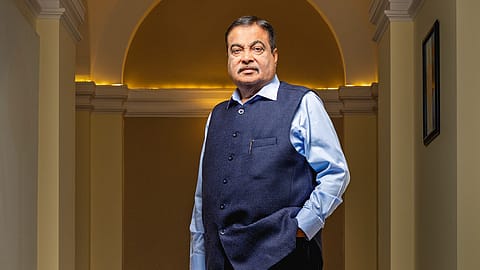Paid campaign against ethanol-blended petrol to target me politically: Nitin Gadkari
The Supreme Court earlier this month dismissed a PIL that sought to make petrol with zero ethanol available, along with a mandatory labelling of ethanol content.

Nitin Gadkari, the Union Minister of Road Transport and Highways, responded sharply against motorists complaining in droves about ethanol-blended petrol causing a considerable dip in fuel efficiency—and threatening motor parts—by calling it a ‘paid campaign’ to target him politically.
At the annual convention organised by the Society of Indian Automobile Manufacturers (SIAM) in New Delhi on Thursday, Gadkari said that automakers and the regulatory body ARAI (Automotive Research Association of India) have given clarity. “The Supreme Court has also decided. The social media campaign against ethanol was paid to target me politically,” the minister claimed. “There was no truth in the allegations.”
As a result of the E20 mandate, Gadkari also said that maize farmers across the country have benefited to the tune of ₹45,000 crore from the ethanol mandate. “The diversification of agriculture towards energy will benefit farmers,” he said.
The matter of the government allegedly making ethanol-blended petrol mandatory without prior intimation or consent reached from the echo chambers of social media to the courtrooms of the Supreme Court, with a PIL that was heard on September 1 by a bench led by Justice BR Gavai, the chief justice of India, along with Justices K Vinod Chandran and NV Anjaria. According to reports, the PIL sought to make available E0 fuel—fuel with zero ethanol—along with a mandatory labelling of ethanol content.
The Supreme Court, however, dismissed the public interest litigation. India’s Attorney General R. Venkataramani reportedly had told the apex court that the government’s decision to switch to E20 fuel was a well-thought-out and considered move. The decision also stands to benefit farmers who grow sugarcane.
A press conference was addressed by a lobby group consisting of representatives of industry bodies, automakers, and oil marketing companies last month. Reji Mathai, director of the Automotive Research Association of India (ARAI), said that ARAI has conducted multiple studies in 2010, 2016, and 2021 to evaluate the performance of vehicles with ethanol-blended fuel. It was only after a conviction was made that E20 fuel was deemed safe that it was implemented.
PS Ravi, Director of Downstream, Federation of Indian Petroleum Industry (FIPI), 2014-15, highlighted in the press conference that the government’s ethanol-blending programme helped save foreign exchange reserves of ₹1.44 lakh crore. In 2025 alone, ₹43,000 crore of foreign exchange savings are expected to be generated. Payments worth ₹1.25 lakh crore have been disbursed to farmers, with 1100-1200 crore litres of ethanol to be purchased by the end of October this year, with the farmers expected to receive ₹85,000 crore.